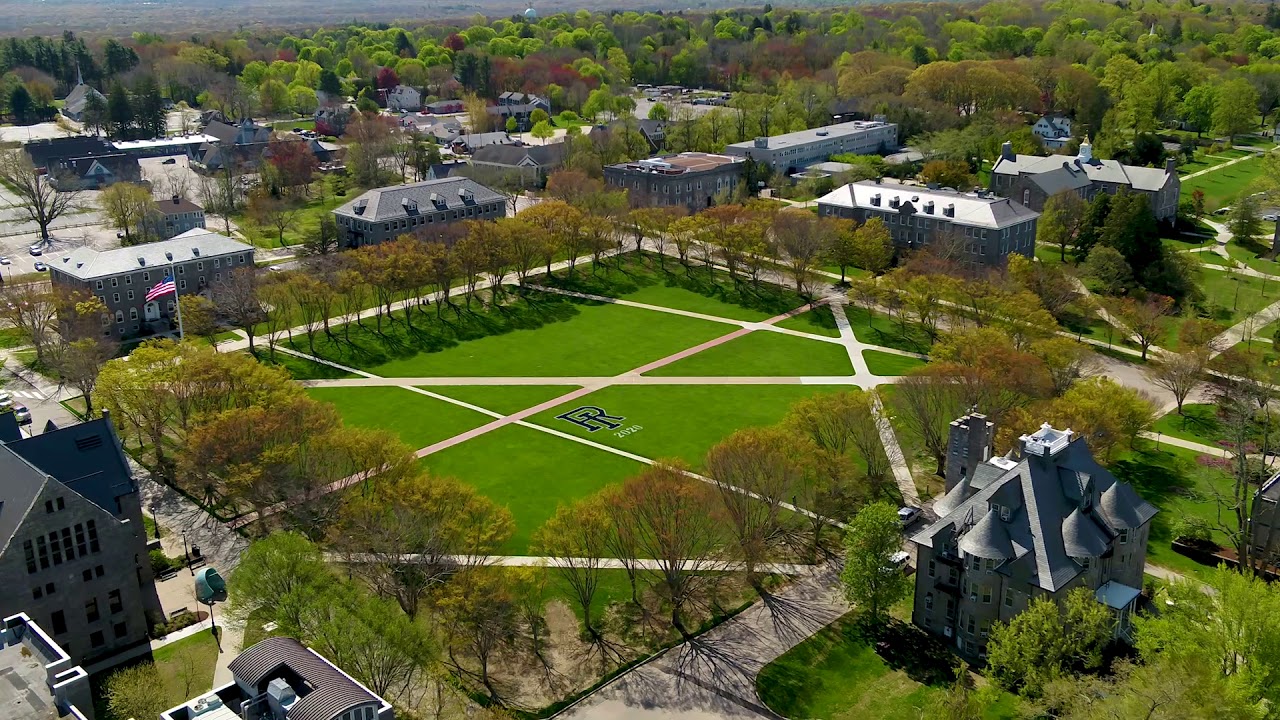Normally held on the Quad, professor Laura Meyerson’s students’ annual Earth Day presentations for her class have been moved to Zoom. Photo from uri.edu.
During a typical year, community members at the University of Rhode Island could find natural resources science students giving presentations on the Quad for Earth Day, but due to the pandemic, you won’t find students out this time.
Though her class’s presentations have been moved on Zoom, wildlife and conservation biology professor Laura Meyerson is still excited for her class’s annual Earth Day presentation in NRS 223: Conservation Biology.
“[The presentations have] been one of the highlights of the class,” Meyerson said. “Students plan a project all semester, and they go out on the Quad and present the results of it in some creative way or engage in activities on the Quad”
Last year, these projects were completely canceled when the COVID-19 pandemic unexpectedly cut all in-person classes short. Meyerson said that as of right now this class is still fully online.
These projects, and the entirety of Earth Day, are often used to encourage faculty and students to reflect on the environment and what is happening to it.
“It’s a way for us to really take an interdisciplinary approach to the challenges we’re facing and come together in a scholarly, fun and educational way,” Meyerson said.
Since the class is not able to present on the Quad, many staple events from previous Earth Day events will not be available, such as the dunk tank typically used to raise money for conservation charities.
Despite the challenges that students have faced in this course with their projects being moved online, they are finding ways to create interesting and relevant projects anyhow.
Sophomore Ben Poepsel is working on a project focused on compost. Poepsel got the idea for the project after watching a Netflix documentary called “Kiss the Ground,” about renewable agriculture.
Poepsel said that he has seen a lot of food waste on campus, and he hopes that URI will do more to reduce food waste. One idea he suggested was the University give its food waste to local farms to use as compost.
Though he is excited about the research, he expressed some disappointment that fewer people would see the class projects without the event on the Quad.
“People in these NRS classes are already interested in this,” he said. “Whereas people passing by would see what we’re doing, so it would reach more people.”
Meyerson said that she does not believe there will be turnout like there has been in previous years, since many people are tired of Zoom calls and virtual events. She also said that in the past, the event had other activities and performances that caught students’ attention. This would usually include music and a game where students have to build the highest tower with recycled materials.
She does not believe that the event will have the same impact over Zoom but still sees it as an opportunity to give students a platform to speak without putting their health at risk.
Meyerson believes that this event will return to the Quad next year. She said that the past two years of no in-person presentations will give her and her students the momentum to create the most interesting possible event.
“It’s unfortunate but maybe it will give us greater motivation to make it even bigger and better next year,” she said.





